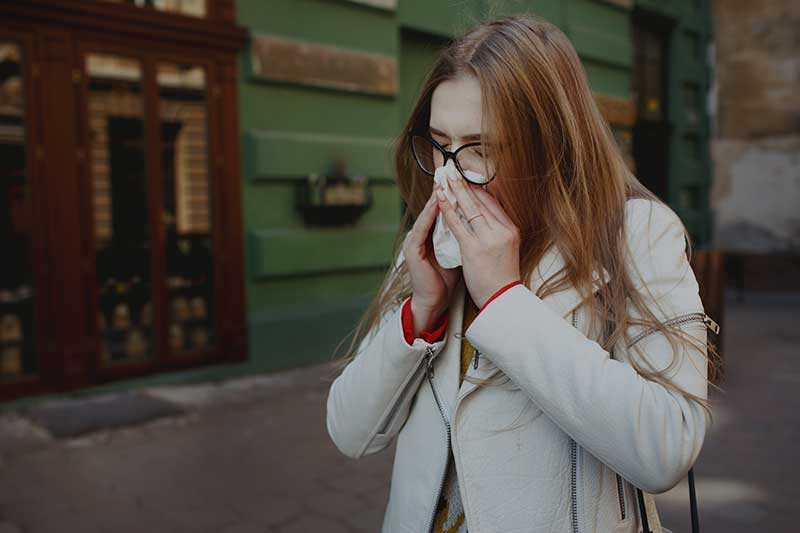Naclerio R, Ansotegui IJ, Bousquet J, Canonica GW, D’Amato G, Rosario N, Pawankar R, Peden D, Bergmann KC, Bielory L, Caraballo L, Cecchi L, Cepeda SAM, Chong Neto HJ, Galán C, Gonzalez Diaz SN, Idriss S, Popov T, Ramon GD, Ridolo E, Rottem M, Songnuan W, Rouadi P.
World Allergy Organ J. 2020 Apr 3;13(3):100106. doi: 10.1016/j.waojou.2020.100106. eCollection 2020 Mar.
Exposition to pollution and climate change worsen symptoms in people with allergic rhinitis. The aim of this study was to summarize the conclusions of an International Expert Consensus on the management of allergic rhinitis aggravated by air pollution.
Epidemiological and clinical studies have shown that co-exposure to aeroallergens and pollutants have an immunological effect that induces inflammatory responses with recruitment of inflammatory cells, cytokines and interleukins. In addition, allergic rhinitis symptoms can be mediated by a neurogenic component upon contact with environmental irritants. Other studies that included specific pollutants exposure and allergen challenge propose that pollution can exacerbate allergic airway disease and increase responsiveness.
Although there have been advances in the understanding of the mechanistic ways of airway inflammation, there is lack of evidence about the benefits of management of allergic rhinitis aggravated by pollution. Fexofenadine, a non-sedating oral antihistamine as shown to improve allergic rhinitis symptoms aggravated by pollution, however, more studies with other related antihistamines in mitigating symptoms resulting from co-exposure to pollution and allergens are needed.
Nevertheless, an individual and careful approach with avoidance measures and conventional pharmacotherapy can improve symptoms caused by allergic rhinitis and air pollution.






